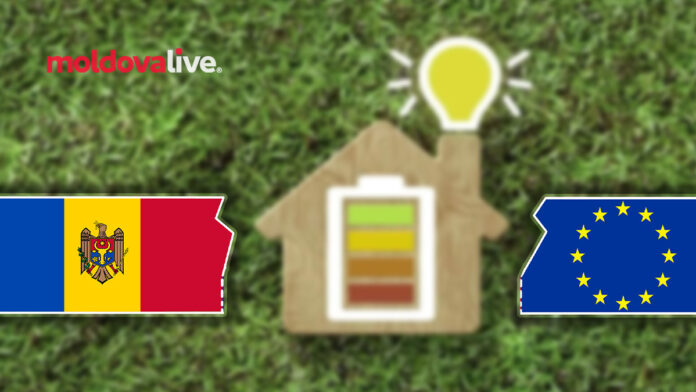The European Union provided €13 million to the Republic of Moldova to overcome the energy crisis and create support mechanisms for vulnerable populations. The program “Addressing the Energy Crisis in the Republic of Moldova,” funded by the European Union and implemented by the United Nations Development Program (UNDP) from 2022 to 2024, delivered this support.
“Moldova has successfully overcome the energy crisis and used it as an opportunity to launch ambitious reforms in the energy sector. But all this would not have been possible without the serious support of the international community, and the program ‘Addressing the Consequences of the Energy Crisis in Moldova’ played an important role in these transformation processes,” Energy Minister Victor Parlicov said at the event.
The program budget is 13 million euros. The Energy Vulnerability Reduction Fund creation, consultations, and resource mobilization contributed to overcoming the energy crisis. Thus, more than 800 thousand families received compensation for energy bills in 2022-2024, when global energy prices reached historic levels.
The European Union funded the installation of photovoltaic panels with a total capacity of 600 kW in five district hospitals in Floresti, Nisporeni, Stefan-Voda, Cahul, and Calarasi. These panels will generate 780 MWh of green electricity annually, reduce hospital costs by more than 20 million lei, and cut CO2 emissions by 437 tons.
“A state with sustainable green energy is not only economically and energy secure but also maintains a high level of sovereignty. The EU supported Moldova in strengthening its energy security during the energy crisis. The Government’s efforts, combined with UNDP’s efficiency, were crucial in reaching this stage,” said Solomon Ioannou, Program Manager of the Delegation of the European Union to the Republic of Moldova.
FOR THE MOST IMPORTANT NEWS, FOLLOW US ON TWITTER!
The program launched several pilot projects that reduced energy consumption in households. The National Center for Sustainable Energy (CNED) expanded these projects nationwide.
In four neighborhoods in Chisinau, workers installed individual heating points and replaced the heat distribution systems with horizontal ones. It will reduce heating costs by 30%. Additionally, they equipped five educational institutions nationwide with energy education equipment.


